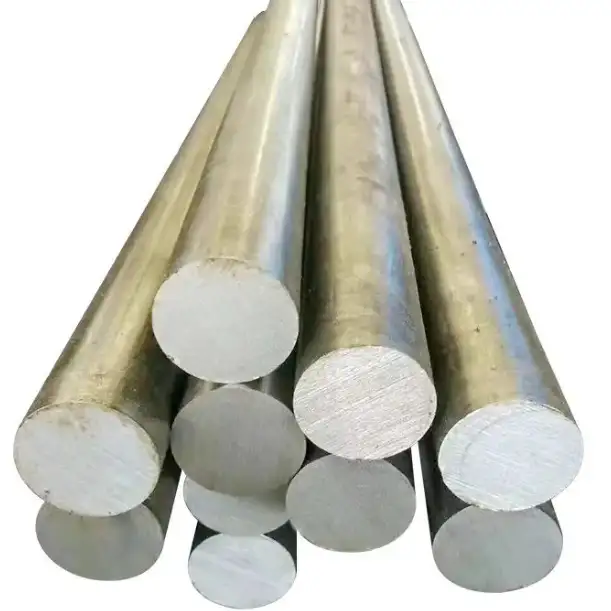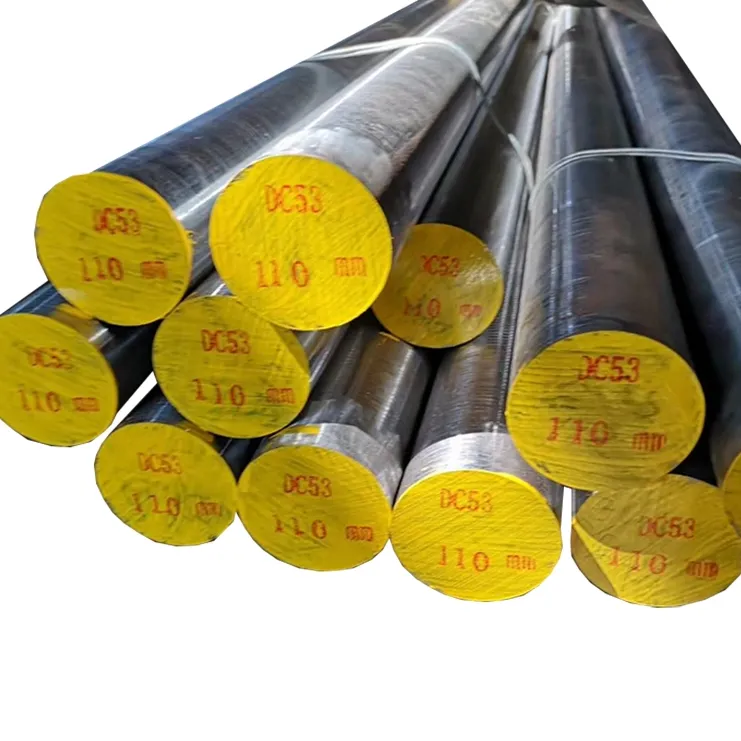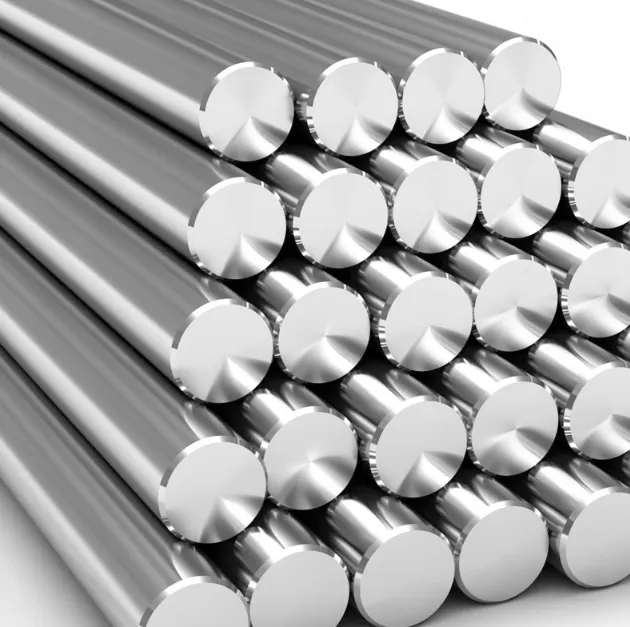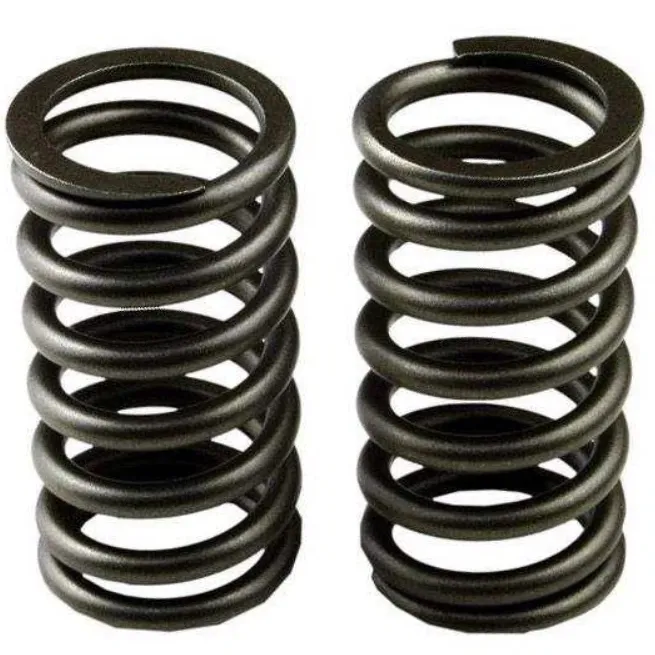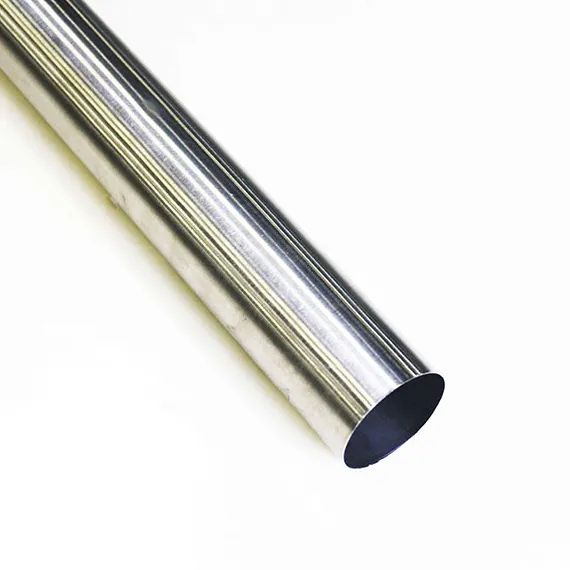Monel 400 round bar (UNS N04400) is a workhorse nickel-copper alloy that combines outstanding resistance to seawater and many chemical media with good toughness and reliable mechanical strength across a broad temperature window. For components that require corrosion resistance in marine, chemical processing, and hydrocarbon environments while still being fabricable and weldable, Monel 400 round bar often represents the best compromise between performance and cost. MWAlloys supplies Monel 400 round bars from China with 100% factory pricing, steady stock levels, and rapid dispatch for most common diameters and lengths — contact MWAlloys for certified material test reports and expedited shipping.
What is Monel 400?
Monel 400 is a binary nickel-copper alloy commonly referenced by UNS number N04400 (W.Nr. 2.4360 / 2.4361). It is a single-phase, face-centered cubic solid solution that cannot be precipitation-hardened; strengthening occurs through cold work. The grade is prized for very low corrosion rates in flowing seawater, excellent resistance to many reducing acids, and useful mechanical properties from cryogenic temperatures up to several hundred degrees Celsius. Typical product forms include plate, sheet, tube, pipe, rod and round bar.
Chemical composition — Monel 400 (UNS N04400)
Table — Limiting composition (weight %) for Monel 400 (typical limits)
| Element | Typical limit / range (wt%) |
|---|---|
| Nickel (Ni) + Cobalt (Co) | ≥ 63.0. (specified as Ni+Co ≥ 63.0 wt%) |
| Copper (Cu) | 28.0 – 34.0 |
| Carbon (C) | ≤ 0.30 |
| Manganese (Mn) | ≤ 2.0 |
| Iron (Fe) | ≤ 2.5 |
| Sulfur (S) | ≤ 0.024 |
| Silicon (Si) | ≤ 0.50 |
Source: Special Metals technical data for Monel 400 (chemical table and physical constants). These ranges define the material used in bar and rod production and are the basis for chemical testing in certificates of analysis.
Notes:
-
The high nickel fraction (with a major copper fraction) gives Monel 400 its characteristic seawater resistance.
-
Because Ni and Cu form a continuous solution, the alloy is single-phase and shows no aging hardening; cold working is the primary method to raise strength.
Physical constants and general behavior
Key physical properties that matter for design and weight calculations:
-
Density: ≈ 8.80 g/cm³ (0.318 lb/in³).
-
Melting range: roughly 1300–1350 °C (2370–2460 °F).
-
Elastic modulus (tension): about 179 GPa (26 × 10³ ksi).
-
The Curie temperature lies near ambient for some heats; that means some Monel 400 lots may show weak magnetic response at room temperature while others remain essentially non-magnetic.
Mechanical properties — typical room-temperature values
Table — Typical mechanical properties for Monel 400 (rod and bar forms)
| Condition | Tensile strength (MPa / ksi) | Yield (0.2% offset) (MPa / ksi) | Elongation (%) | Hardness (HB / HRC) |
|---|---|---|---|---|
| Annealed (rod & bar) | 517–620 MPa (75–90 ksi) | 172–345 MPa (25–50 ksi) | 60–35% | 110–149 HB |
| Hot-finished | 552–758 MPa (80–110 ksi) | 276–690 MPa (40–100 ksi) | 60–30% | 140–241 HB |
| Cold-drawn, stress-relieved | 579–827 MPa (84–120 ksi) | 379–690 MPa (55–100 ksi) | 40–22% | 160–225 HB |
Values taken from material producer data for rod/ bar conditions; actual lot certificates should be consulted for design calculations. Monel 400 retains toughness to very low temperatures and shows limited strength loss up to several hundred °C, which makes it suitable for cryogenic and moderately high-temperature service.
Monel 400 round bar — common specifications and sizes
Table — Typical round bar offerings (examples used in trade)
| Product form | Typical diameter range (mm) | Typical length options (mm) | Common standards |
|---|---|---|---|
| Round bar (cold-drawn/annealed) | 3 mm — 200 mm+ (small-section to large forgings) | Cut-to-length (300–6000 mm) or custom | ASTM/ASME, DIN, SAE/AMS |
| Hot-finished bar | 20 mm — 800 mm (larger diameters) | Forged billets or long bars | ASTM B164/B166 (reference for bar/rod goods) |
| Hex/flat/round special sections | Per customer drawings | Forgings, blanks | QQ-N-281, SAE AMS variants |
Sources from commercial suppliers and stockists show wide availability; common stock diameters include 6, 8, 10, 12, 16, 20, 25 mm and imperial equivalents, plus larger sizes by order. MWAlloys maintains inventory for typical diameters and can cut and test to meet customer traceability needs.
Tolerances and certifications: Buy from suppliers that provide mill test reports (chemical and mechanical), heat numbers, and compliance statements to the applicable ASTM/ASME or EN standards. For pressure-boundary or nuclear contexts, reference specific ASME Section II tables for allowable stresses.
Standards, material IDs and traceability
Monel 400 is commonly identified by these codes and standards:
-
UNS: N04400.
-
W-Nr. (Germany): 2.4360 / 2.4361.
-
Typical specifications for product forms include ASTM / ASME and various DIN / SAE / AMS specifications for wire, rod and forgings. The producer technical bulletin lists applicable standards used in global supply chains. Always request the exact specification (for example ASTM designation for rod/ bar) on the purchase order.
How Monel 400 differs from Monel K-500
Monel K-500 contains small additions of aluminum and titanium that allow age (precipitation) hardening; this produces significantly higher yield and tensile strengths versus Monel 400, with some tradeoffs in stress-corrosion cracking tendency under certain conditions.
Key technical contrasts:
-
Hardening mechanism: Monel 400 — cold work only; Monel K-500 — precipitation hardening (Al + Ti additions).
-
Strength: K-500’s yield and tensile can be roughly 2×–3× higher after aging compared with annealed Monel 400; this makes K-500 the choice for high-strength shafts, fasteners and rotating parts that must resist wear.
-
Corrosion and SCC: Monel 400 often shows slightly better resistance to stress-corrosion cracking in some environments; K-500’s improved strength may increase susceptibility under the wrong combination of stress, chloride presence, and temperature. Proper heat treatment and design mitigate these risks.
Is Monel stronger than Inconel?
“Inconel” denotes a family of nickel-chromium alloys (for example Inconel 600, 625, 718). Many Inconel grades were developed for elevated-temperature strength; they often provide higher tensile and yield strength at high temperatures than Monel 400. Monel 400’s distinguishing trait is corrosion resistance to seawater and specific acids rather than extreme high-temperature strength. For high-temperature, creep-resistant applications, engineers typically choose an Inconel grade tailored to the service temperature and environment.
Practical decision rule: use Monel 400 when seawater or reducing acid corrosion is the dominant selection driver and moderate strength + toughness are acceptable; pick an Inconel when operating temperatures, oxidation resistance, or sustained high-temperature strength dominate the design constraints.
Typical applications for Monel 400 round bar
Representative uses where Monel 400 round bar is commonly specified:
-
Marine shafts, seawater fittings, propeller components.
-
Valves, pump shafts, and fasteners for seawater and chemical plants.
-
Heat-exchanger tubesheets, condensers and brackets exposed to seawater.
-
Chemical process equipment, fittings, and piping components that must resist reducing acids.
-
Cryogenic and low-temperature hardware where toughness is required.
Manufacturing, machining, welding and fabrication notes
-
Machining: Monel 400 is workable with standard tooling; it work-hardens, so controlled feeds and sharp tooling give the best surface finish and tool life. Free-machining variants (R-405) exist for better machinability.
-
Welding: Conventional welding techniques work well; recommended filler metals are Ni-Cu filler types (e.g., ENiCu-7). Pre- and post-weld heat treatment guidance depends on product form and desired properties; consult producer fabricating bulletins.
-
Heat treatment: Monel 400 is annealed at high temperatures to soften prior cold work. Because it cannot be precipitation hardened, heat treatment options are limited to stress relief and anneal cycles; aging treatments are used for K-500, not 400.
2025 global price snapshot and comparisons
Prices for high-nickel alloys fluctuate with raw nickel markets, regional demand, and lot size. The following table gives indicative ranges for Monel 400 product prices in 2025 (per kilogram), compiled from trade listings and market reports. Use these figures only for budgeting; request quotes for firm orders.
Table — Indicative Monel 400 price ranges (USD per kg) — 2025
| Region | Typical price range (USD/kg) | Notes / sources |
|---|---|---|
| United States | $45 — $65 / kg | Higher production cost and certified stock; IMARC Q1 2025 US monel price reports. |
| Europe (Germany/France) | $48 — $67 / kg | EN/REACH compliance often adds cost. |
| China (domestic exporters) | $28 — $45 / kg | Competitive mill prices from Chinese mills and online B2B listings; small MOQ variations. |
| India | $30 — $50 / kg | Local production and exporters serve industrial markets. |
| Global spot / US$ per metric tonne | Example: ≈ $44,960 / MT (Q1 2025 sample) | See market price intelligence reports for quarterly figures. |
Important buying notes:
-
Prices depend strongly on diameter, length, temper, lot quantity, certification requirements (e.g., material traceability, NDT, PMI).
-
Imported material incurs freight, customs duties and potential inspection hold times. MWAlloys offers 100% factory price lines for buyers who accept standard mill test documentation and can supply expedited shipping for stocked sizes. For bespoke certifications (nuclear, aerospace), prices rise due to testing and paperwork.
Procurement checklist
-
UNS / WNr / Mill spec: Confirm UNS N04400 (Monel 400) and relevant standard (ASTM/ASME/DIN).
-
Form & temper: Round bar, hot-finished or cold-drawn; annealed or stress-relieved.
-
Mill test report (EN 10204 / 3.1 or 3.2) showing chemical and mechanical results.
-
Heat number traceability to manufacture records.
-
Welding and fabrication documentation if component will be joined.
-
MOQ, lead time, and shipping terms. MWAlloys offers fast delivery from Chinese stock for common sizes.
FAQs
1) What is the typical UNS number for Monel 400 round bar?
UNS N04400 (W.Nr. 2.4360/2.4361).
2) Can Monel 400 be heat-treated to increase strength?
No. Monel 400 is a solid-solution alloy; strength increases primarily by cold work. For precipitation hardening, choose Monel K-500.
3) Is Monel 400 magnetic?
Some heats show slight magnetic response because the Curie temperature can fall near room temperature; many lots remain essentially non-magnetic. If non-magnetic behavior is required, discuss with the mill.
4) How does Monel 400 perform in seawater?
Monel 400 has excellent corrosion resistance in flowing seawater. In stagnant crevices, pitting or crevice corrosion can occur; design to prevent stagnant pockets.
5) What welding filler is recommended?
Nickel-copper filler metals (ENiCu types) are commonly used; follow manufacturer welding guidance.
6) What are common bar sizes in stock?
Common diameters from 6–100 mm are frequently listed; larger diameters are available by order. MWAlloys maintains stock for popular diameters for quick delivery.
7) Is Monel 400 suited for cryogenic service?
Yes — Monel 400 retains toughness at very low temperatures and shows no ductile-to-brittle transition down to liquid hydrogen conditions in laboratory data.
8) Does Monel 400 resist hydrofluoric acid?
Monel 400 shows strong resistance to hydrofluoric acid over a wide range of conditions; verify with chemical compatibility charts for concentration and temperature.
9) How should Monel 400 bar be specified on a PO?
Include UNS N04400, product form (round bar), diameter & length, temper, mill test report type (e.g., EN 10204 3.1), and any special inspection or packaging instructions.
10) Where can I buy certified Monel 400 round bar at competitive prices?
Reputable mills, stockists and established exporters in China, the US and Europe all trade Monel 400. For large volumes or standard sizes, Chinese mills and MWAlloys often offer strong factory pricing with fast stock dispatch. Always verify certification and traceability.
MWAlloys — product & supply note
MWAlloys is a China-based supplier and manufacturer serving global engineering buyers. For Monel 400 round bar we furnish mill-certified material test reports, full traceability to heat numbers, and 100% factory price offers for standard diameters. Common sizes are stocked to enable rapid turnaround; bespoke diameters and certified lots can be arranged. Contact MWAlloys sales for firm quotes including lead times, packaging and inspection options. (Always request the specific mill test report required by your project prior to purchase.)
Authoritative References
- Special Metals Corporation — Monel® Alloy 400 Technical Bulletin (PDF)
- Wikipedia — Monel (overview and references)
Closing notes
-
For pressure-containing or safety-critical components, always require full mill test reports and, when necessary, third-party inspection.
-
If an application requires high strength plus corrosion resistance, compare K-500 and selected Inconel alloys against Monel 400 using service temperature, chloride content, and expected stress states to avoid service surprises.
-
For pricing, request firm quotations with delivery terms; the ranges shown here are indicative and affected by market moves in nickel and copper, freight, and certification requirements.

